
Below are some past expeditions featured on the OceanExplorer.NOAA.gov website related to seamounts.
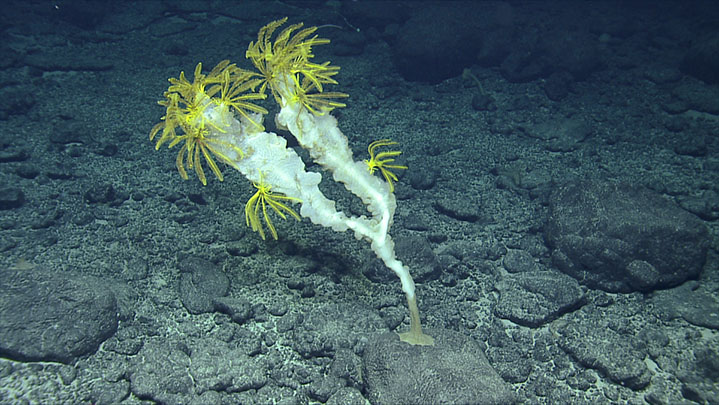
Researchers explored seamounts of Papahānaumokuākea Marine National Monument (PMNM), collecting baseline information about the geological origins and mineral resources of the seamounts and the animals and microbes that live on them.
Read more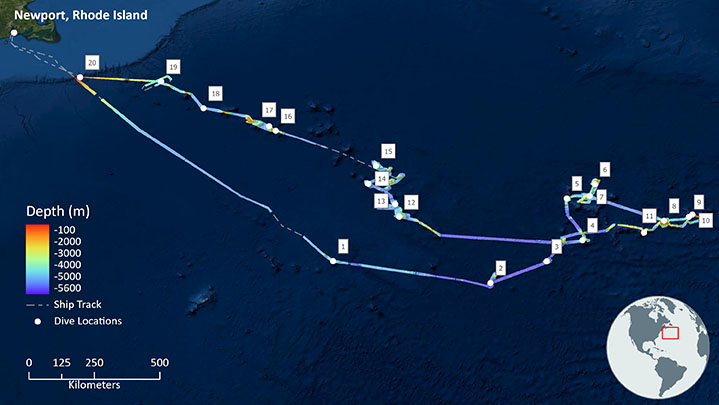
Mapping and remotely operated vehicle (ROV) operations during this expedition yielded observations of numerous potential new species and new animal behaviors, geological samples to expand our understanding of ferromanganese crusts, and data on 20 seamounts that had never been mapped before.
Read more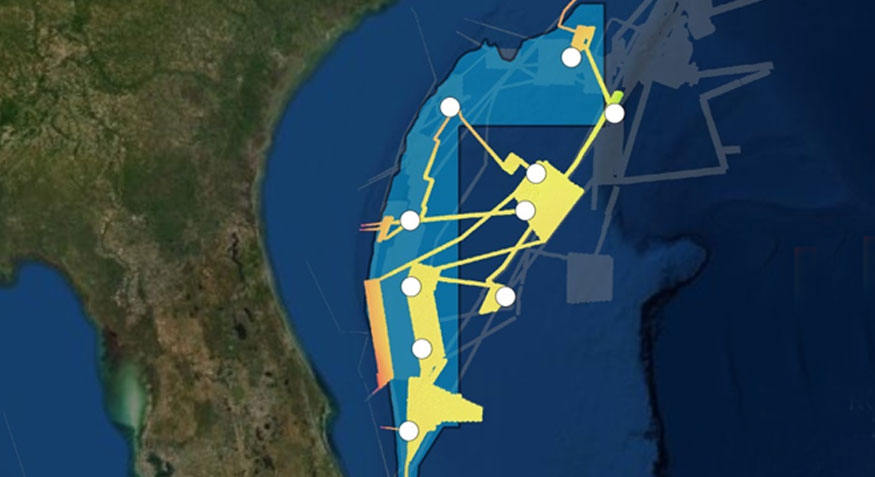
Deep Connections 2019: Exploring Atlantic Canyons and Seamounts of the United States and Canada was a two-part, telepresence-enabled ocean exploration expedition.
Read more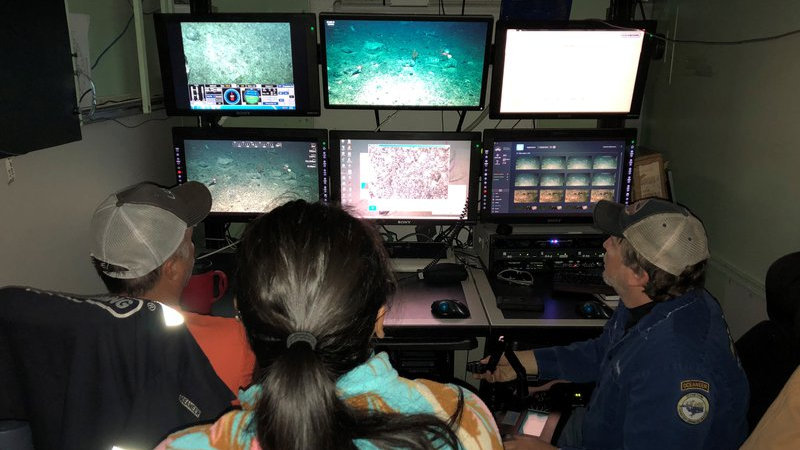
From July 21 – August 3, 2019, a multi-disciplinary and international team of scientists and media personnel sailed from Seward, Alaska, to the Gulf of Alaska Seamounts region onboard R/V Sikuliaq.
Read more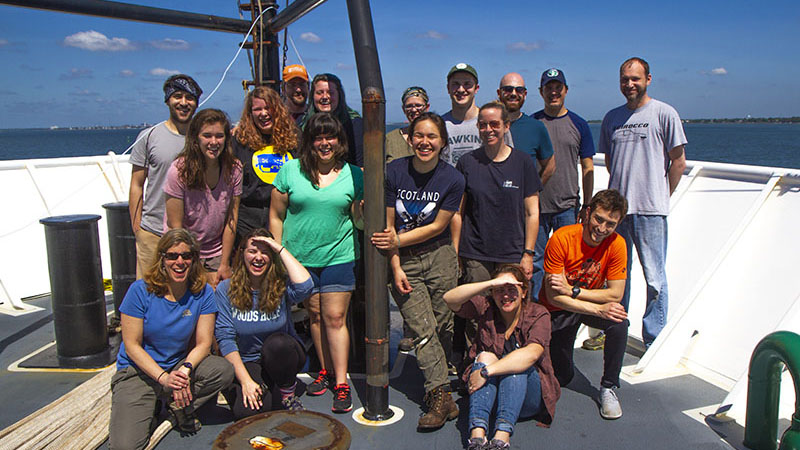
From April 9 to 30, 2019, NOAA and partners at the Bureau of Ocean Energy Management and the U.S. Geological Survey conducted a research expedition on NOAA Ship Ronald H. Brown to collect critical baseline information about deepwater habitats offshore the U.S. Mid- and South Atlantic coasts.
Read more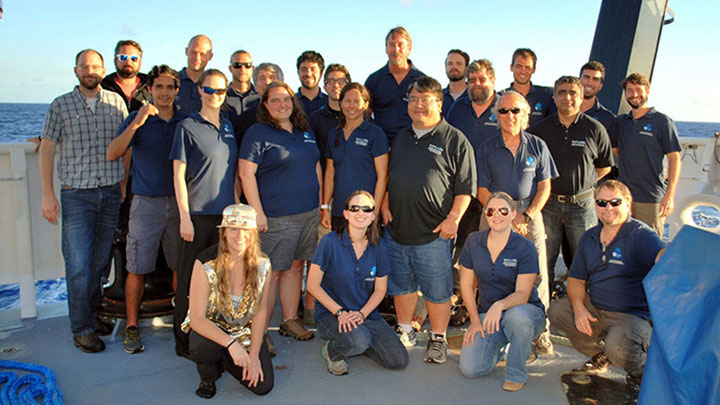
NOAA and partners conducted an expedition on NOAA Ship Okeanos Explorer to collect critical baseline information about unknown and poorly known deepwater areas in the Johnston Atoll Unit of the Pacific Remote Islands Marine National Monument, now known as Pacific Islands Heritage Marine National Monument.
Read more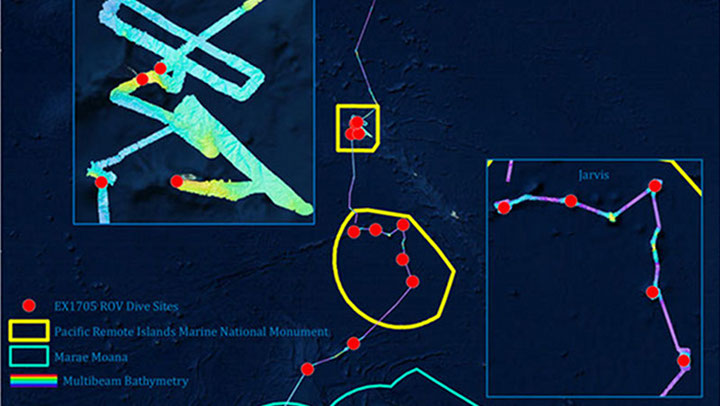
NOAA and partners conducted a telepresence-enabled expedition on NOAA Ship Okeanos Explorer to collect critical baseline information about unknown and poorly known deepwater areas as it transited across the northern portion of the Cook Islands, with focused work in the vicinity of both the Jarvis Island and Kingman/Palmyra units of the Pacific Remote Islands Marine National Monument, prior to returning to Honolulu.
Read more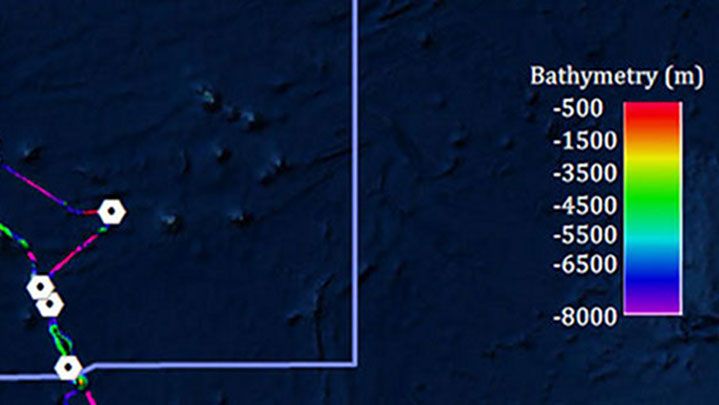
NOAA and partners conducted a telepresence-enabled ocean exploration expedition on NOAA Ship Okeanos Explorer to collect critical baseline information about unknown and poorly known deepwater areas in the Howland and Baker Unit of the Pacific Remote Islands Marine National Monument and the Phoenix Islands Protected Area.
Read more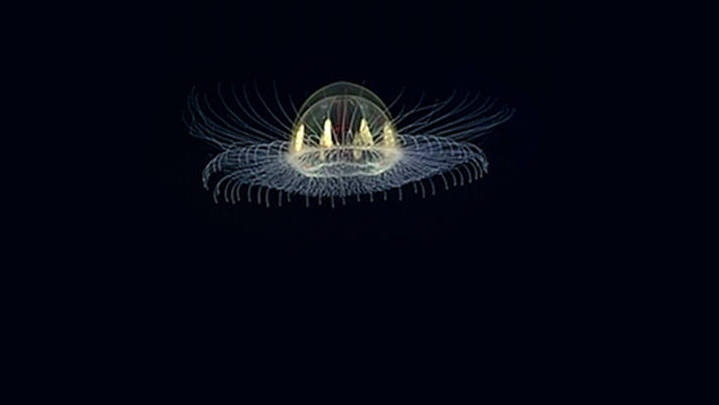
NOAA and partners conducted two telepresence-enabled ocean exploration cruises on NOAA Ship Okeanos Explorer to collect critical baseline information of unknown and poorly known deepwater areas in American Samoa and Samoa, with an emphasis on Rose Atoll Marine National Monument, National Marine Sanctuary of American Samoa, and National Park of American Samoa.
Read more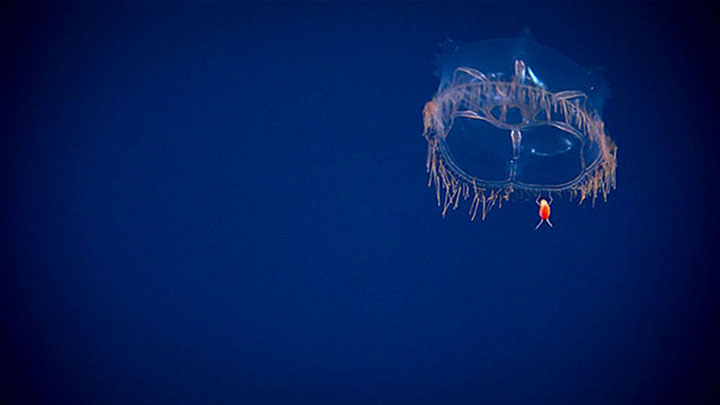
NOAA and partners conducted a telepresence-enabled ocean exploration expedition on NOAA Ship Okeanos Explorer to collect critical baseline information about unknown and poorly understood deepwater areas around the Musicians Seamounts and the Hawaiian Islands.
Read more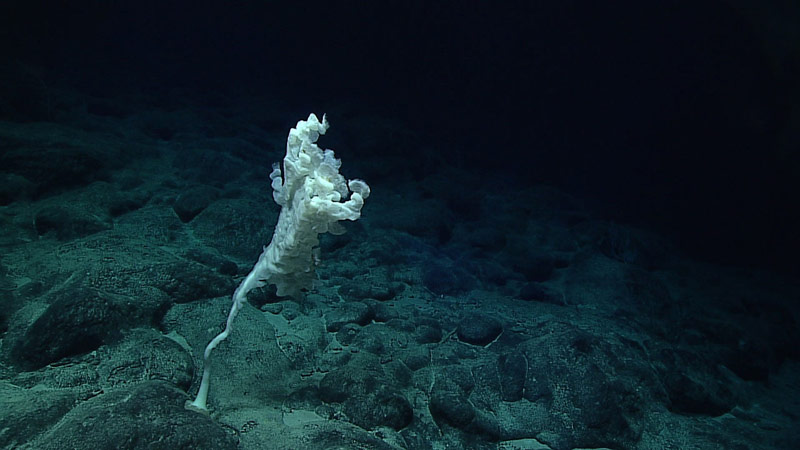
The 24-day Deepwater Wonders of Wake: Exploring the Pacific Remote Islands Marine National Monument expedition addressed science themes, priority areas, and exploration targets put forward by scientists and managers across the broad ocean science community.
Read more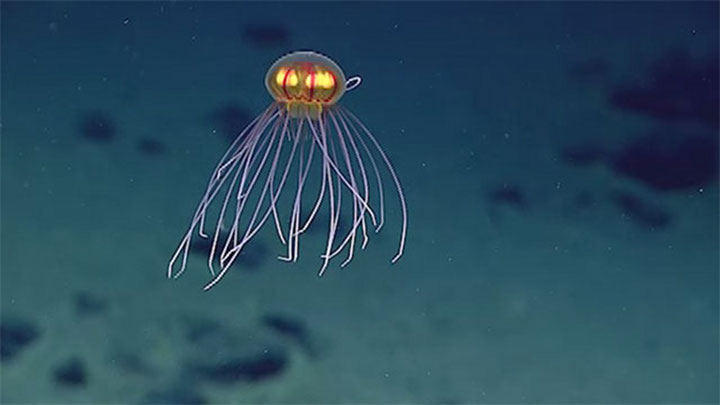
The expedition was a 59-day, three leg telepresence-enabled expedition including remotely operated vehicle, CTD rosette, and mapping operations to explore unknown and poorly known areas in and around the Marianas Trench Marine National Monument and the Commonwealth of the Northern Mariana Islands.
Read more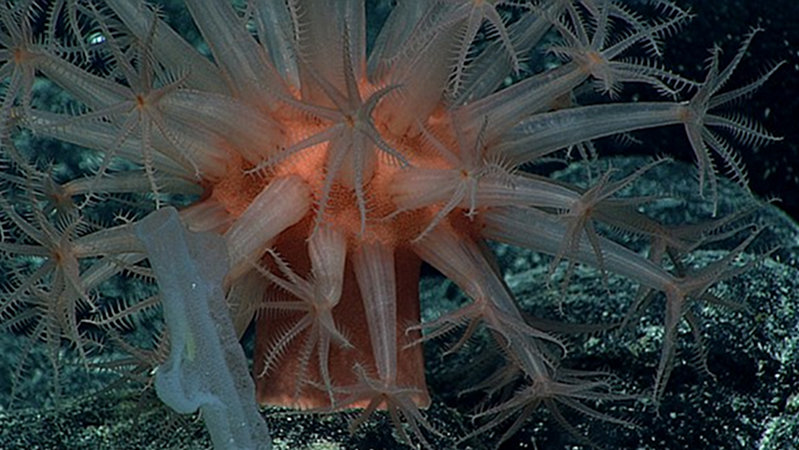
Scientists continued a 2015 Hohonu Moana expedition effort to explore deep-water habitats in and around Papahānaumokuākea Marine National Monument. The expedition included work on seamounts in the Mid-Pacific Mountains.
Read more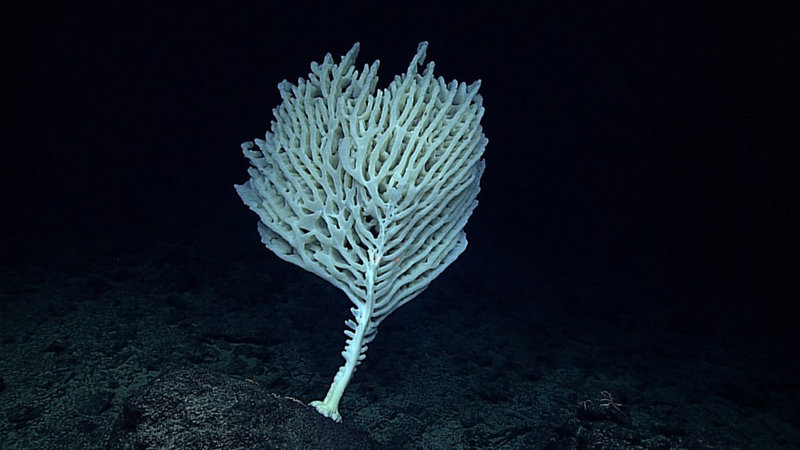
The 69-day expedition included four cruise legs to conduct mapping and remotely operated vehicle (ROV) operations in the deep waters of the Hawaiian Archipelago.
Read more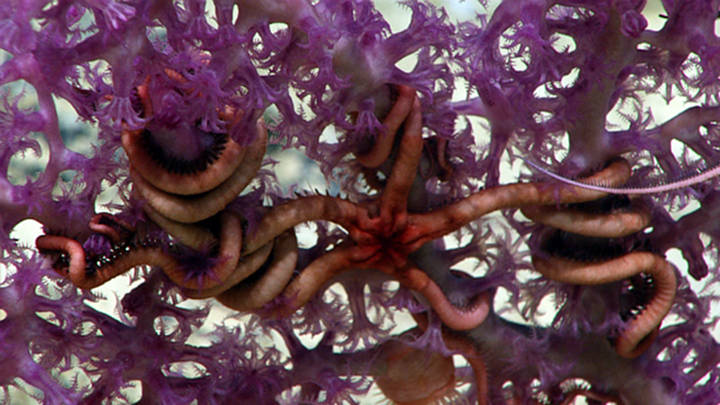
A three-leg expedition aboard NOAA Ship Okeanos Explorer explored unknown and poorly known deepwater regions around Puerto Rico and the U.S. Virgin Islands.
Read more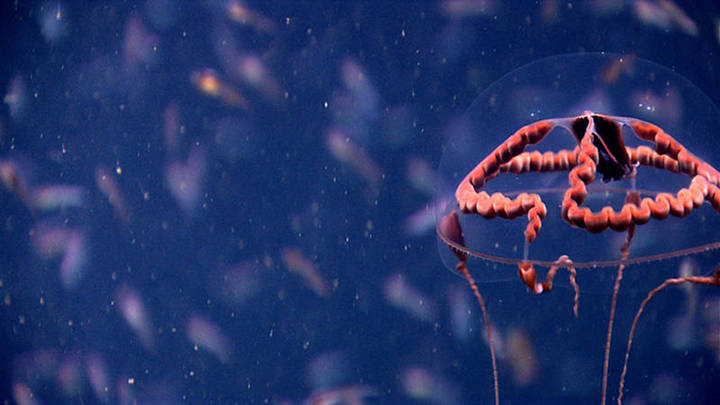
During this mission NOAA Ship Okeanos Explorer explored the largely unknown deep-sea ecosystems of the U.S. Atlantic coast. Our at-sea and shore-based science team collected baseline data in the Atlantic submarine canyons and along the New England Seamount Chain.
Read more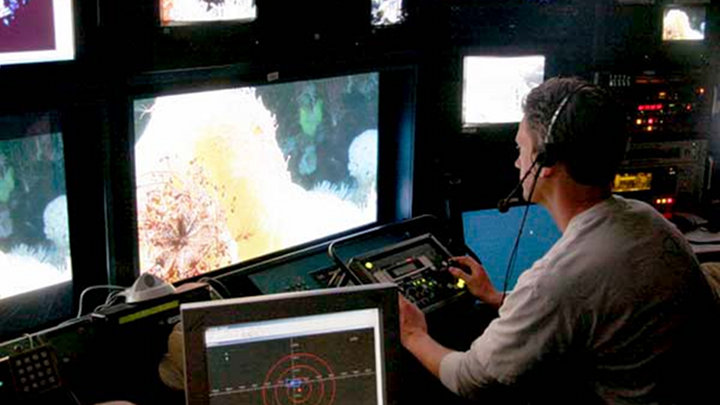
During this mission scientists explored the cold waters of the Davidson Seamount at depths of 4,100 to 12,000 feet (1,250 to 3,660 meters) off the Central California coastline.
Read more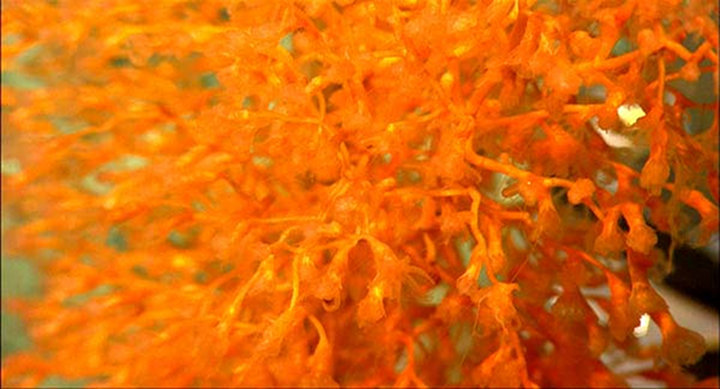
During this mission scientists studied the very old New England and Corner Stone seamount chains to help them understand the distribution of deep-sea biodiversity.
Read more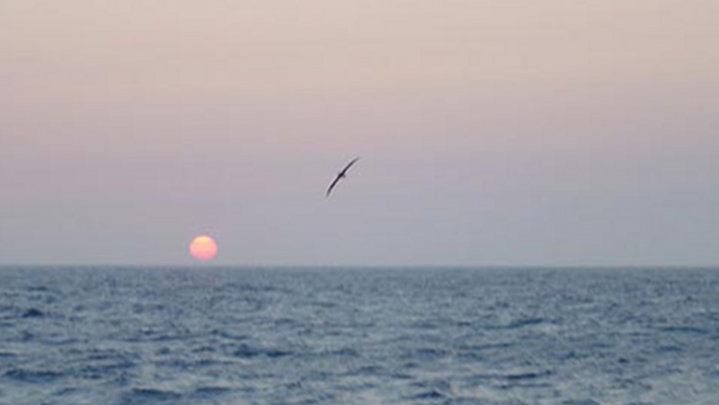
This expedition party dove to 3,500 meters to conduct biological and geological investigations on five submerged volcanoes over a 400-nautical-mile section of the Northeast Pacific.
Read more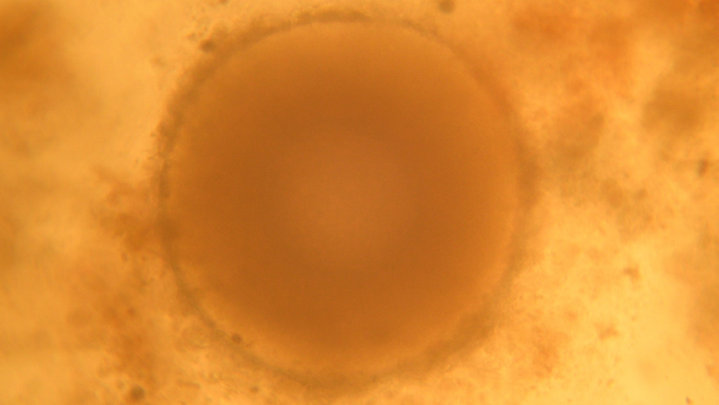
During this expedition scientists returned to document and try to understand the octocoral communities of the New England Seamounts.
Read more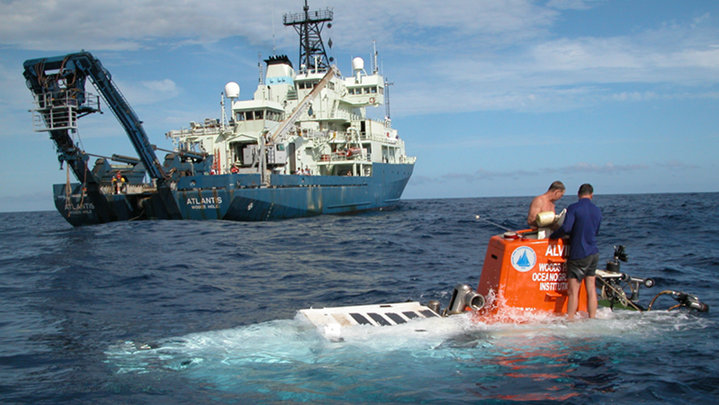
Explorers visited several little-known seamounts in the North Atlantic to study various aspects of deep-sea octocorals and other organisms living on and around these submerged mountains.
Read more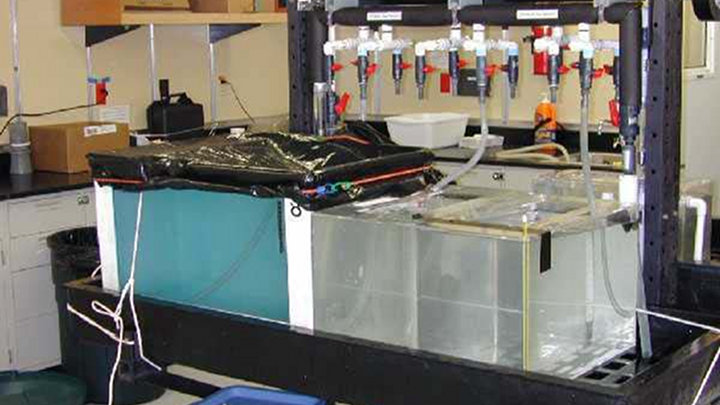
A team explored the Davidson seamount with remotely operated vehicles. Extensive video surveying and biological sampling shed light on this little known undersea island.
Read more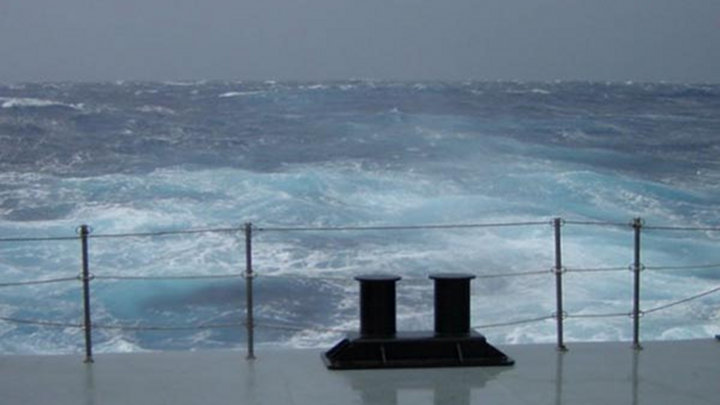
A team of scientists traveled to the Northwestern Hawaiian Islands, a remote chain of small islands and atolls, to view unexplored seamounts and map pristine coral reefs.
Read more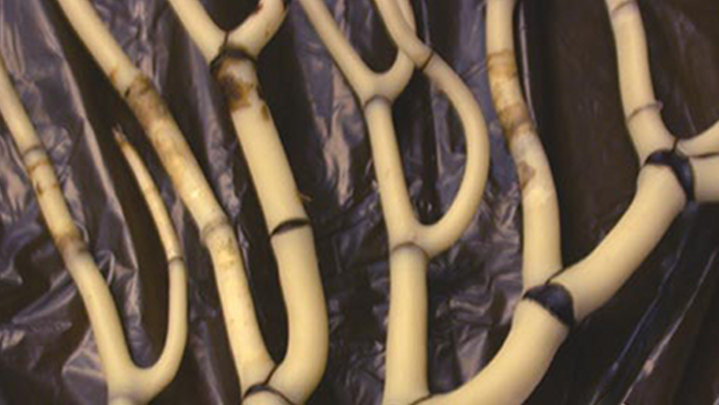
Scientists studied several unexplored seamounts in the Gulf of Alaska to understand how they formed and to determine their volcanic history.
Read moreThe above items are only a selection of the educational materials highlighting seamounts on our website.
View More